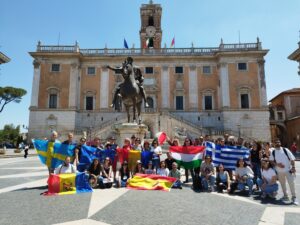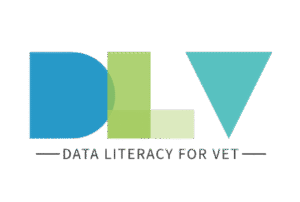In an era marked by rapid globalization, environmental challenges, and social changes, the need for active citizenship and sustainable living has never been more pressing. Recognizing the crucial role that education plays in shaping future generations, the Erasmus training course titled “Education for Active Citizenship and Sustainability: Training Aware Citizens” seeks to address these contemporary issues by empowering educators and community leaders. This course is meticulously designed to provide participants with the tools and strategies needed to foster a culture of active engagement and environmental stewardship among their students and communities.
The concept of active citizenship encompasses more than just participating in electoral processes; it involves a proactive approach to societal involvement, where individuals not only understand their rights and responsibilities but also actively contribute to the well-being of their communities. This course aims to deepen participants’ understanding of active citizenship, exploring its various dimensions and historical evolution. By examining the interplay between education and citizenship, participants will gain insights into how educational practices can cultivate informed, responsible, and engaged citizens.
Simultaneously, the course places a strong emphasis on sustainability, an equally critical component of modern education. As the world grapples with issues such as climate change, resource depletion, and social inequality, sustainable practices have become essential for ensuring a livable future. This course introduces participants to the fundamental principles of sustainability, highlighting the interconnectedness of environmental, social, and economic factors. Participants will learn how to integrate sustainable practices into their daily lives and educational frameworks, thereby promoting a holistic approach to living and learning.
One of the unique aspects of this training is its focus on the symbiotic relationship between active citizenship and sustainability. Through integrative approaches and project-based learning, the course demonstrates how these concepts can be seamlessly woven into curricula and community initiatives. By linking these two critical areas, the course prepares participants to tackle complex, real-world problems through interdisciplinary and collaborative efforts.
The course is structured over five days, with each day dedicated to specific themes and learning objectives. Interactive lectures, hands-on workshops, group discussions, and case studies form the backbone of the training methodology, ensuring a dynamic and engaging learning experience. Participants will have the opportunity to design and implement project-based learning activities, develop action plans, and engage in networking sessions that foster long-term collaboration and support.
Moreover, the course is designed to be practical and actionable. Participants will leave with not only a deeper understanding of the concepts discussed but also tangible strategies and plans that can be implemented in their own educational settings and communities. The emphasis on practical application ensures that the knowledge gained during the course translates into real-world impact, driving positive change and fostering a culture of active citizenship and sustainability.
By bringing together educators and community leaders from diverse backgrounds, this Erasmus training course also creates a vibrant network of individuals committed to making a difference. Participants will benefit from the shared experiences and perspectives of their peers, building a supportive community that extends beyond the duration of the course. This network will serve as a valuable resource for continued learning, collaboration, and advocacy in the realms of active citizenship and sustainability.
Day 1: Foundations of Active Citizenship and Sustainability
- Introduction to the course, participant introductions, and icebreaker activities.
- Overview of active citizenship and sustainability: definitions, history, and contemporary relevance.
- Interactive workshop: Exploring the interconnectedness of active citizenship and sustainability.
- Group discussion: Analyzing the role of education in shaping responsible citizens.
Day 2: Pedagogical Approaches for Active Citizenship and Sustainability
- Introduction to inquiry-based learning, problem-based learning, and project-based learning in the context of active citizenship and sustainability education.
- Workshop: Designing lesson plans that integrate active citizenship and sustainability across different subject areas.
Day 3: Project-Based Learning and Community Engagement
- In-depth exploration of project-based learning: designing, implementing, and assessing projects that address real-world issues.
- Field trip: Visiting a local organization or project that exemplifies active citizenship and sustainability in action.
Day 4: Empowering Students as Changemakers
- Workshop: Developing student leadership skills, critical thinking, and collaboration through active citizenship and sustainability projects.
- Group activity: Brainstorming and designing a school-wide initiative to promote active citizenship and sustainability.
Day 5: Assessment, Reflection, and Next Steps
- Workshop: Developing assessment tools to measure student learning and engagement in active citizenship and sustainability.
- Course reflection, sharing of insights and takeaways, and planning for implementation in participants’ own teaching contexts.
- Closing ceremony and distribution of certificates.
Learning outcomes
Through interactive workshops, discussions, and project-based learning, teachers will gain practical strategies to empower students to become engaged, informed, and responsible citizens who contribute positively to their communities and the environment.Learning Objectives:By the end of this course, participants will:
- Understand: The key concepts and principles of active citizenship and sustainability, including their historical and contemporary contexts.
- Analyze: The role of education in fostering active citizenship and promoting sustainable development.
- Develop: Pedagogical approaches and lesson plans that integrate active citizenship and sustainability across various subjects.
- Implement: Project-based learning activities that engage students in real-world issues related to their communities and the environment.
- Assess: The impact of their teaching on student awareness, attitudes, and behaviors related to active citizenship and sustainability.
- Network: Collaborate with other educators to share ideas, resources, and best practices for promoting active citizenship and sustainability.
Upcoming sessions
Location: Rome
- September 2024: Week 2 (September 9 – 13)
- October 2024: Week 3 (October 14 – 18)
- November 2024: Week 4 (November 18 – 22)
- December 2024: Week 3 (December 16 – 20)
- January 2025: Week 4 (January 20 – 24)
- February 2025: Week 4 (February 24 – 28)
- March 2025: Week 4 (March 24 – 28)
- April 2025: Week 5 (April 28 – May 2)
- June 2025: Week 1 (June 2 – 6)
- July 2025: Week 1 (June 30 – July 4)
- September 2025: Week 2 (September 8 – 12)
- November 2025: Week 2 (November 10 – 14)
- December 2025: Week 3 (December 15 – 19)





